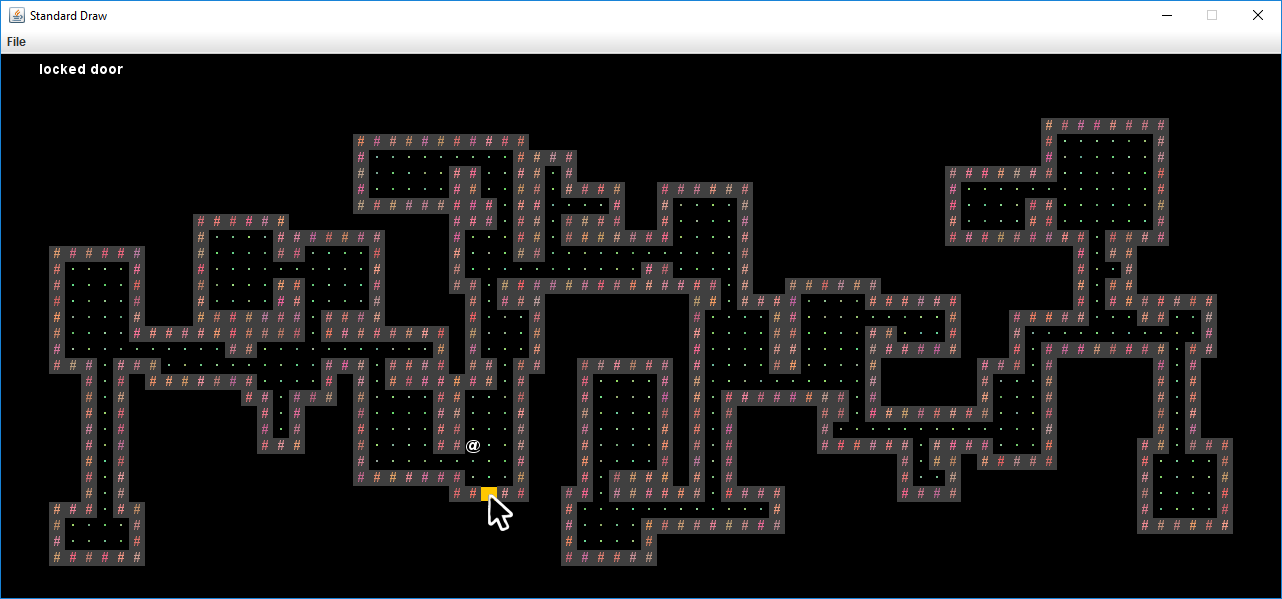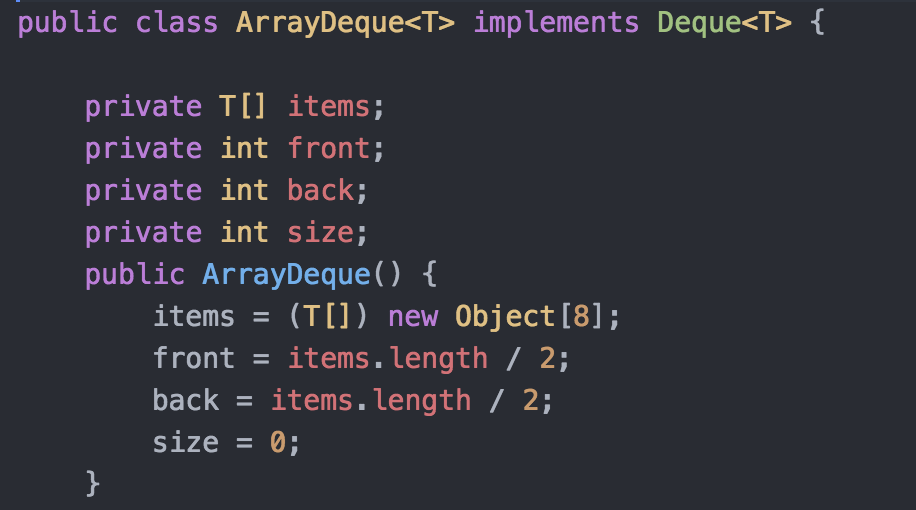Build Your Own World
UC Berkeley | Computer Science 61B
April 2019
|
In this project, an video game platform was created consisting of randomly generated worlds. This world was a 2D tile-based world exploration engine. Through the software, the user will be able to explore by walking around and interacting with objects in that world. This game is similar to that of the NES game “Zelda II."
In addition, design and implementation elements were added. Requirements for this project were:
Technologies: Java, IntelliJ, StdDraw |
Figure 1.6 Randomly generated world User Interface through the Standard Draw library.
|
Java Deque API
UC Berkeley | Computer Science 61B
February 2019
|
Deque (usually pronounced like “deck”) is an irregular acronym of double-ended queue. Double-ended queues are sequence containers with dynamic sizes that can be expanded or contracted on both ends (either its front or its back).
In this assignment, a Java Deque (Array Deque and Linked List Deque) API was created from scratch while optimizing runtime be implementing abstract data structures and utilizing recursion. In addition, test cases were made to check for bugs. Technologies: Java, IntelliJ |
Figure 1.5 Section of the code written in Java for the ArrayDeque interface.
|

